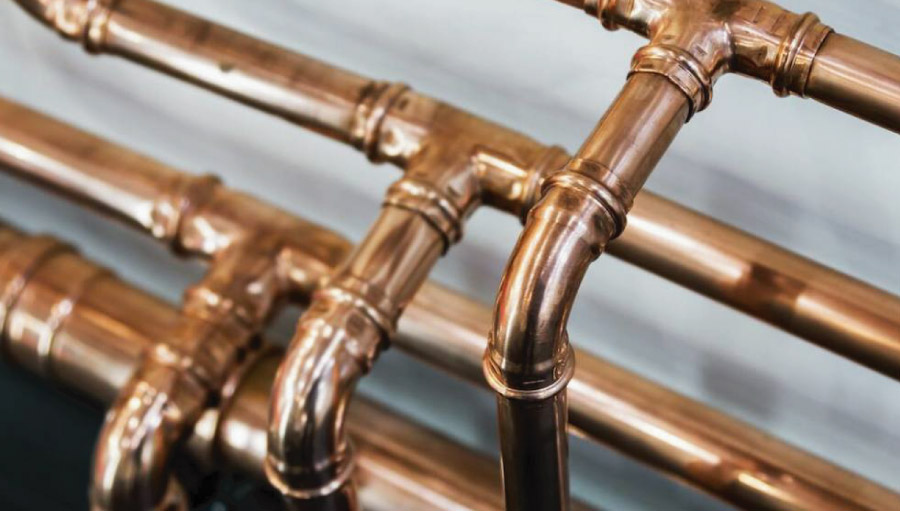What’s the Difference Between Copper, PEX, PVC, and CPVC Plumbing Pipes?
When choosing plumbing piping, it’s important to understand the differences in materials, and to consider the application. Copper pipes are metal and more durable, while PEX, PVC, and CPVC pipes are plastic and tend to have a shorter lifespan. Let’s look at the differences in a little more detail.

Copper Pipes
Copper pipes have been the standard plumbing choice for many years. They are tremendously durable and can tolerate extreme temperatures. In addition, copper pipes won’t corrode so your water can stay free of contaminants. Copper is more rigid and expensive that other piping materials which can lead to costly installations.
Cross Linked Polyethylene or PEX Pipes
PEX pipes are generally more affordable to work with than copper pipes because the material (plastic) is cheaper, and it is easier to install. PEX pipes are often quieter, rarely leak, can tolerate extreme temperatures, and environmentally friendly. This type of pipe is great for retrofits, since the flexibility allows the pipe to be snaked through floors and walls.
Polyvinyl Chloride or PVC Pipes
PVC pipes are a popular residential plumbing choice. These plastic pipes are affordable, durable, and versatile. A variety of sizes and fittings are available and no metalwork is needed. PVC won’t corrode or rust and its limited durability makes it great for high-pressure needs. However, PVC doesn’t hold-up to hot water or extended exposure to UV light, which means it must be used indoors or under ground. Because of PVC’s potential to degrade, it isn’t safe to deliver drinking water and is often used for transporting waste.
Chlorinated Polyvinyl Chloride or CPVC Pipes
CPVC pipes are a close cousin to PVC pipes. This type of pipe brings all the benefits of PVC, but with improved durability and chlorine added to the material to make it safe for drinking water. And because CPVC can be used for hot water, it’s a better alternative to copper pipes. It’s more flexible than its metal counterpart for those difficult applications, a little quieter, and insulated to preserve thermal loss. Although CPVC is more expensive than PVC, it’s generally easier to install.
Resources found on our website are provided as general guidelines, and Reddi Industries does not assume any liability resulting from the provided information.

